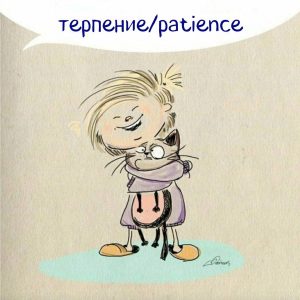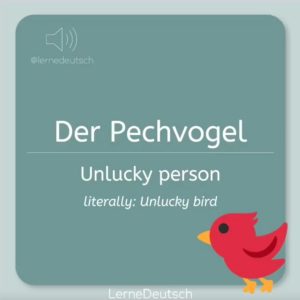Sound like a local wherever you go.
As we prepare for our future world travels, let’s prep now to sound like a local when we arrive. Here is some of our favorite slang from different countries around the world.

Spain
TÃo/TÃa
Translation: Guy/girl. Literally translating to uncle and aunt, this is the common way Spaniards refer to one another. When in Spain, more often than not, “mi tÃo†will mean “my friend†more so than “my uncleâ€.
Qué guay
Translation: How cool. This is used when referring to something neat or interesting, something you really like.
Majo/a
Translation: Cool/hip (adjective). This is used to describe someone who is particularly hip, cool, or someone that you admire/aspire to be like.
Guiri
Translation: Foreigner. Spaniards use this term to refer to foreigners, especially tourists.
Currar/Curro
Translation: To work (verb), work (noun). This is the word Spaniards prefer to use to express that they’ve been hard at work. “Tengo mucho curro†or “Estaba currando†are common ways to say “I have a lot of work†or “I was working†in Spain, but not in many other Spanish-speaking countries.
Ser la leche
Translation: To be awesome/awful. Literally translating to “to be the milk†this is a commonly used phrase to express something really awesome—or awful—depending on the context.

Russia (and parts of Ukraine)
Balagan (балаган)
Translation: A rukkus or commotion. Although a bit old-fashioned, it’s still a fun one to use. This word even made it’s way over to Israel and is used a lot there as well.
Hren znayet (хрен знает)
Translation: Who knows? Fun fact: hren literally translates to horseradish.
Nifiga sebe (нифига Ñебе)
Translation: You’re kidding me! This is what Russian speakers use to signify disbelief.
Blin (блин)
Translation: Dang it. This is a lighter version of the more aggressive “blyat.â€
Kruto (круто)
Translation: Cool, awesome. This word literally means “steep†but has taken on a more modern definition.
Zhest (жеÑÑ‚ÑŒ)
Translation: A joke. This one’s easy to remember because it’s close to the English word “jestâ€. You can use it to literally mean a joke, or to mean crazy as in “That situation was a total joke/crazy.â€Â

Hong Kong (Cantonese)
Baan ju sik lo fu (扮豬食è€è™Ž)
Translation: Manipulate someone into a false sense of security. Literally translating into “pretend to be a pig to eat a tiger,†this phrase is used to refer to someone who appeared innocent or dim at first, but ended up being a manipulator and/or backstabber.
Jah ba si (æ¸å·´å£«)
Translation: Drunk and about to be sick. This phrase literally translates to “driving a busâ€, because the person who is ill holds the toilet seat like a bus driver would the steering wheel.
Aa mÄau aa gáu (阿貓阿狗)
Translation: That person. Literally translating to “any cat or dogâ€, this is what Cantonese speakers use to talk about a hypothetical individual, loosely translating to “any old person,†or “whoever.â€
NgÄak gwái sihk dauh fuh (呃鬼食豆è…)
Translation: To trick someone / You’re kidding me! This phrase literally translates to “cheating the ghost to eat bean curd†and can mean both to lure someone into a trap/trick someone, and to express disbelief.
Fut hai (佛系)
Translation: A go-with-the-flow type of person. Literally translating to “Buddhist style,†this expression describes someone who takes a nonchalant attitude towards life.
Baahk máah wòhng jà(白馬王å)
Translation: Someone who saves the day. This phrase, which describes someone who comes to the rescue or remedies a situation, literally translates to “prince on a white horse.â€

Germany
Jein
Translation: Maybe. A combination of the words for yes “Jaâ€, and no “Neinâ€, “jein†is used to express “maybe†or that you haven’t made up your mind yet.
Blau machen
Translation: To skip school. Literally meaning to make blue, you can also use “blau sein†(to be blue) to say that you’re drunk.
Einen kater haben
Translation: I have a hangover. Literally translating to “I have a male cat†this is a great phrase to use the day after a big night out.
Fett
Translation: Cool. Literally meaning “fat,†this is similar to how some English speakers used to use the term “phat†to signify “cool†(does anyone still do that by the way?).
Alter
Translation: Friend or mate. Oddly enough, this word literally translates to “age.â€
Assi
Translation: A person who is rude, annoying, or an outsider. Assi is short for asozial—translating to “asocial†in English.

Mexico
Perrón
Translation: Cool. Literally translating to “big dog,†this term is regularly used by Mexicans to refer to something really cool or awesome.
Banda/Bandilla
Translation: Group of friends. This is what Mexicans call their group of friends. “Qué pasa banda†is a common expression when arriving to a meet up with people.
Estar al tiro
Translation: To be alert. Literally “to be at the shot†or to be ready for the shot, as in that of a pistol starting a race.
Poca madre
Translation: Cool or bad. This expression can be used to describe something that was cool and awesome or something that went poorly, depending on the context.
Qué padre
Translation: How cool. Similar to Spain’s “qué guayâ€, this is used to express something that is really neat or interesting.
Desmadre
Translation: A rukkus or commotion. You’ve probably noticed that Mexicans have a lot of slang that refers to mothers and fathers! This is another one that is similar to the Russian “balagan†or Argentinian “quilombo.â€
Interested in learning more? Here are some fun slang and language learning Instagram accounts to follow:







